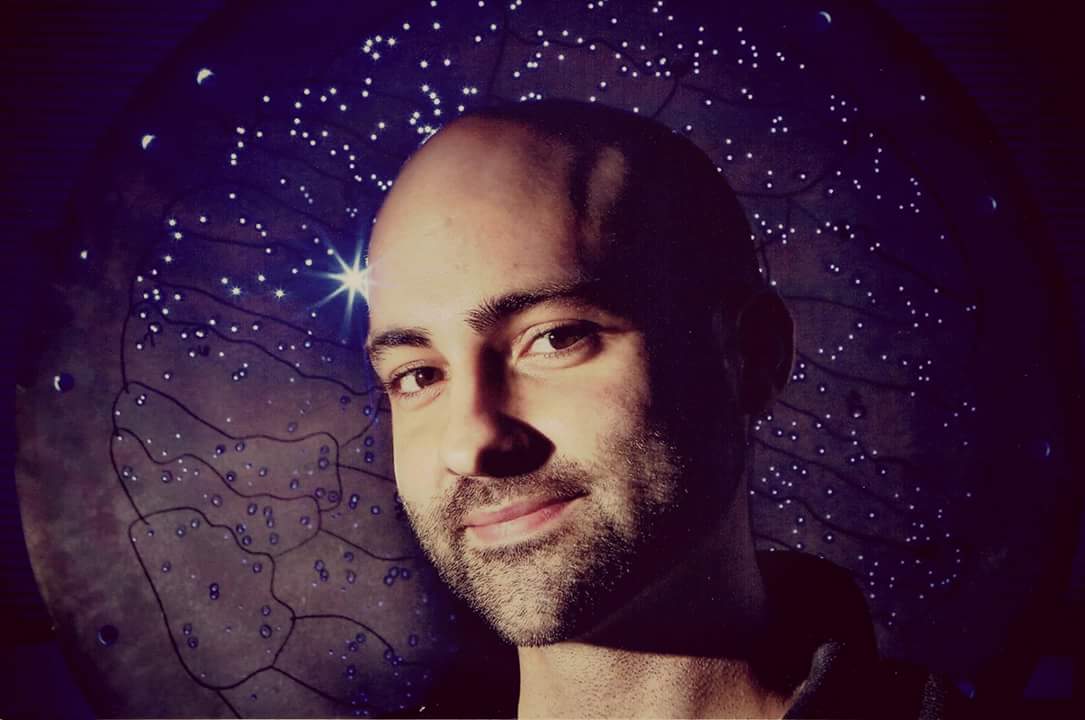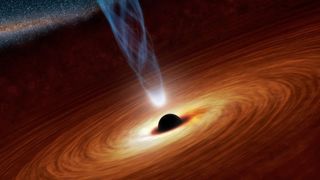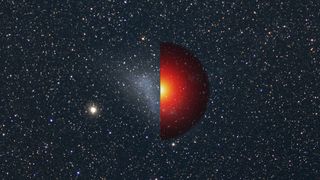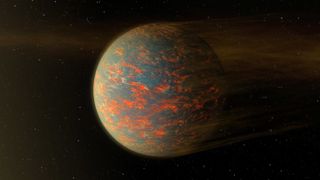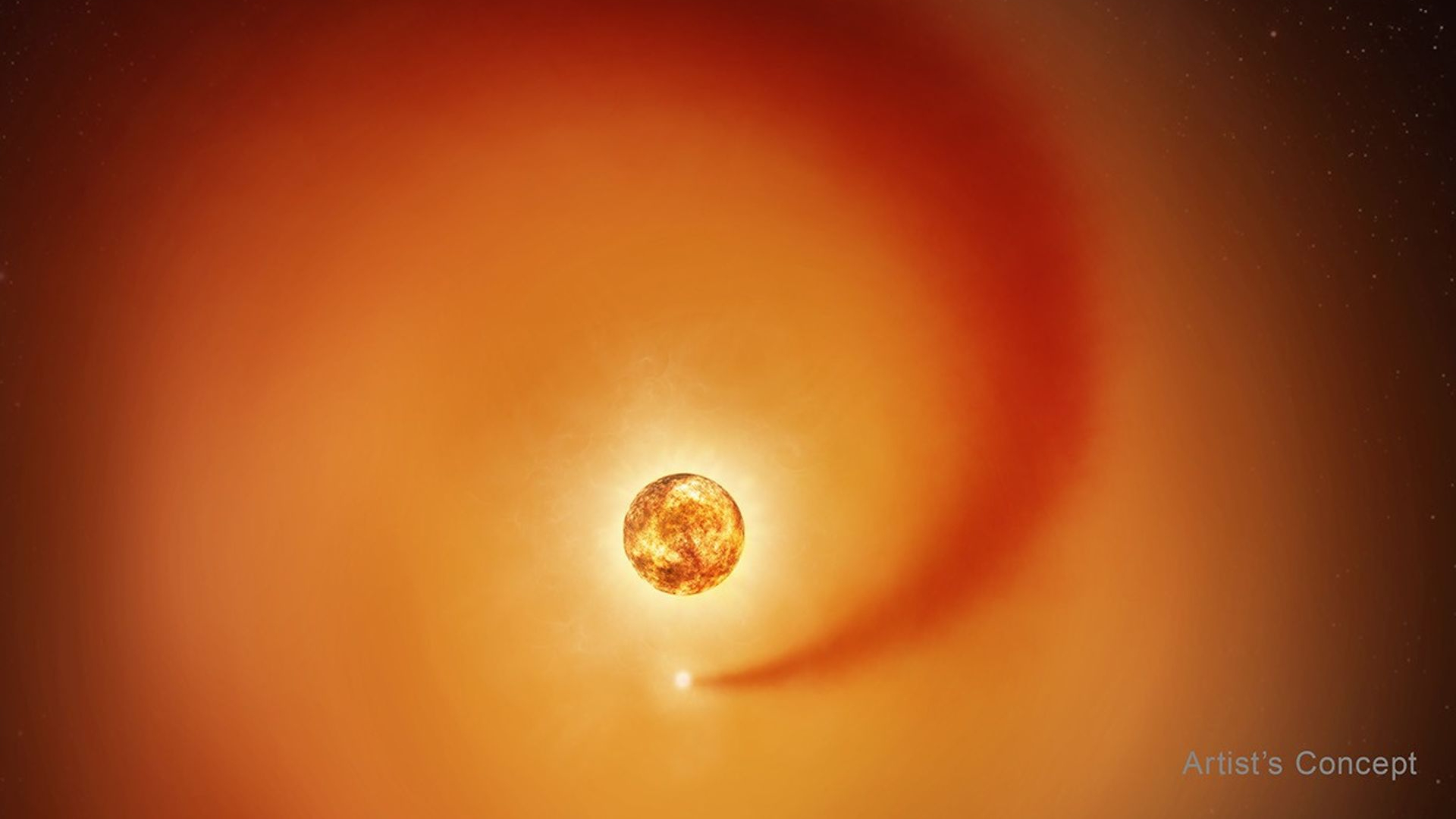Paul M. Sutter is a cosmologist at Johns Hopkins University. A prolific scientist, he has written over 60 academic publications on topics such as the earliest moments of the big bang and the largest objects in the universe. Paul is also an award-winning science communicator. He has authored three critically acclaimed, international bestselling books and has hosted television shows on Discovery, Science Channel, History Channel, and numerous digital outlets. You can find his essays in The New York Times, Scientific American, Nautilus, and more. In addition to regular appearances on NBC News, BBC News, CNN, and The Weather Channel, Paul has developed one of the most popular podcasts in the world and is a globally recognized leader in the intersection of art and science, especially in his role as a United States Cultural Ambassador.
Latest articles by Paul Sutter
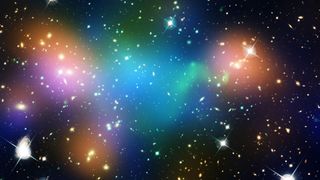
How much of the universe is dark matter?
By Paul Sutter published
There simply isn't enough normal matter to account for the amount of gravitational force needed to hold the universe together, meaning dark matter must be prevalent.
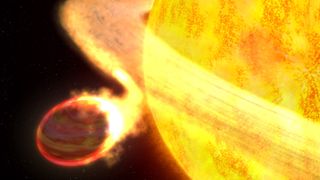
Planet-killing stars can cover up their crimes. Here's how we could catch them.
By Paul Sutter published
Astronomers have found a way to catch planet-murdering stars red-handed and figured out how long we have until the case grows cold.
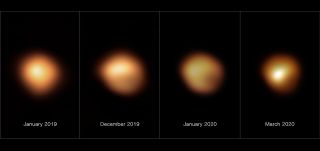
Betelgeuse's mysterious 'Great Dimming' may have been triggered by a wandering black hole
By Paul Sutter published
New research suggests that a wandering companion may have played a role in Betelgeuse's antics of late 2019.
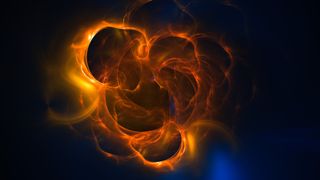
Wrinkles left over from the Big Bang may have magnetized the universe
By Paul Sutter published
Researchers have proposed what's perhaps the most exotic explanation to date for the source of the universe's seed magnetic field: cosmic strings.
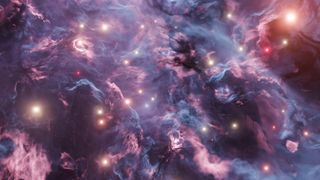
'Fuzzy' dark matter might make stars form in giant 'pancakes'
By Paul Sutter published
A model of exotic dark matter suggests that the first stars may have formed not as individuals, but as tiny pockets embedded in gigantic, pancake-like sheets.
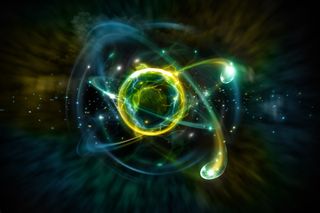
Why Physicists Are Interested in the Mysterious Quirks of the Heftiest Quark
By Paul Sutter last updated
The top quark is about 100 trillion times heavier than the up quark. But why?
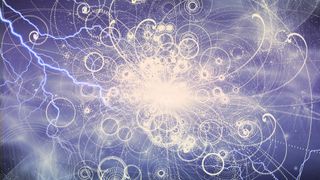
Strange quark star may have formed from a lucky cosmic merger
By Paul Sutter last updated
A team of physicists has found that the remnant of a neutron star merger observed in 2019 has just the right mass to be a strange hypothetical quark star.
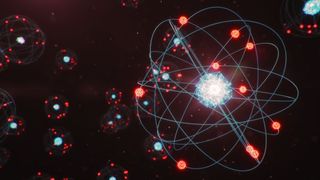
Where do electrons get energy to spin around an atom's nucleus?
By Paul Sutter last updated
Electrons were once thought to orbit a nucleus much as planets orbit the sun. That picture has since been obliterated by modern quantum mechanics.

How did we figure out atoms exist?
By Paul Sutter last updated
The concept of atoms had been floating around off and on for a few millennia, but it took some clever experimentation to pinpoint their existence.

'Spooky action at a distance' can lead to a multiverse. Here's how.
By Paul Sutter published
Some interpretations of quantum mechanics propose that our entire universe is described by a single universal wave function that constantly splits and multiplies.
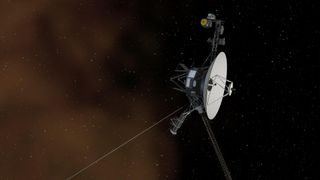
If aliens have visited the solar system, here's how to find clues they left
By Paul Sutter published
In a new paper, scientists outline how we can look for clues any alien visitors to our solar system may have left behind.
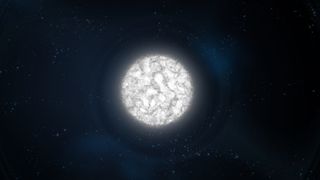
How to use the James Webb Space Telescope to hunt for life around white dwarfs
By Paul Sutter published
Many white dwarfs host planets that may lie within the habitable zones of those stars and may even support life. Now, scientists have outlined how to hunt for that possible life.
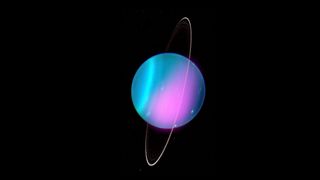
Uranus' weird tilt may be the work of a long-lost moon
By Paul Sutter published
Uranus is just plain weird, and one of the weirdest things about it is its tilt.
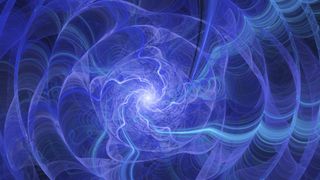
Can stringy physics rescue the universe from a catastrophic transformation?
By Paul Sutter published
A new understanding inspired by string theory shows that our universe may be more stable than we previously thought.
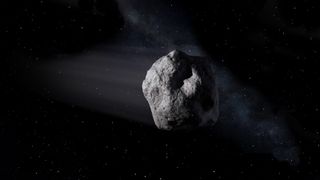
Help find weird comet-like asteroids that could reveal solar system secrets
By Paul Sutter published
Astronomers know of only a few dozen examples of these active asteroids, but they suspect more are out there — and you can join the hunt.
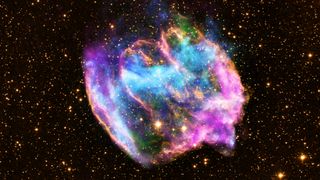
Supernova alert! Astronomers just found a way to predict explosive star deaths
By Paul Sutter published
If you see a giant red star surrounded by a thick shroud of material, watch out — the star will likely explode within a few years.
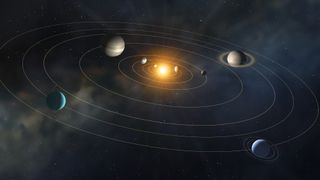
What makes Newton's laws work? Here's the simple trick.
By Paul Sutter published
Lagrange found that the difference between an object's kinetic energy and potential energy unlocked something deeply profound about the universe.
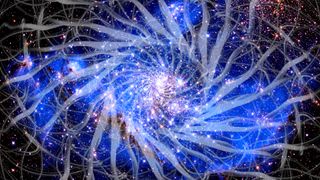
Dark matter could finally reveal itself through self-interactions
By Paul Sutter published
One hypothesis for the nature of dark matter is that some of it could be self-interacting, meaning the individual particles interact slightly with one another.
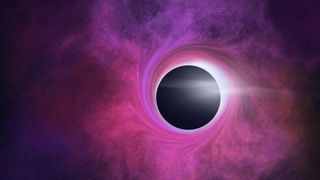
Black hole 'superradiance' phenomenon may aid quest for dark matter
By Paul Sutter published
Scientists think that when dark photons collect around black holes, they can get trapped and boosted to high energies, where they might transform into other particles (or even just normal photons).
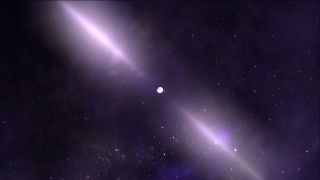
Unusual 'revived' pulsars could be the ultimate gravitational wave detector
By Paul Sutter published
Astronomers hope to use pulsars scattered around the galaxy as a giant gravitational wave detector. But why do we need them, and how do they work?
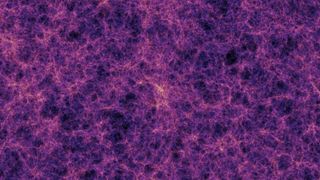
Giant voids of nothingness may be flinging the universe apart
By Paul Sutter published
Dark energy could be caused by pressure from giant voids of nothingness that may be flinging the universe apart.
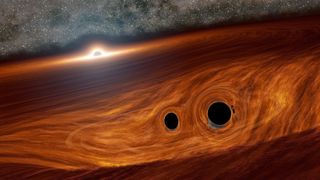
How dancing black holes get close enough to merge
By Paul Sutter published
New research suggests a way for black holes to merge quickly: They must be caught in the accretion disk of a supermassive companion.
Breaking space news, the latest updates on rocket launches, skywatching events and more!
